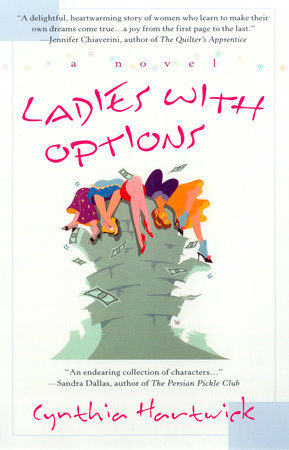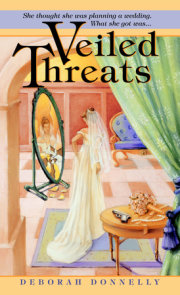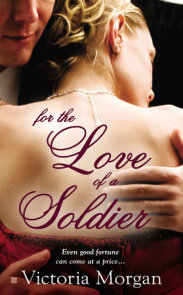READERS GUIDE
Questions and Topics for Discussion
INTRODUCTION
In 1983, with the frightening implications of a new global economy looming large even over little Larksdale, Minnesota, a librarian named Gladys sits down to do a few calculations and discovers that between her savings and her pension, she’ll have less than $500 a month to live on in her retirement—providing she doesn’t lose her job in the meantime! When Gladys takes this concern to her Mostly Methodist Club (mostly married, mostly without children, mostly middle-aged, with Deborah Cohen making it “mostly” Methodist), they decide to take action by re-forming as the Larksdale Ladies Investment Club, pooling $1,500 each towards a more secure future.
When a string of patronizing male investment “experts” fail to inspire their confidence, they decide to strike out on their own. Sure, they’re more used to swapping recipes than stock tips. But starting with what they know—shopping malls—and the help of a techno-savvy, pink-haired college student on probation, the ladies make a few good picks and find themselves on a whole new adventure, one that uncovers new qualities in themselves and in each other.
ABOUT CYNTHIA HARTWICKCynthia Hartwick has a Ph.D. in English and also attended film school. When not writing, she works as a business consultant.
Praise
Praise for Cynthia Hartwick’s Ladies with Options
“Readers will certainly enjoy seeing small-town gals make good . . . A witty, thoroughly likeable tale.”—Kirkus Reviews
“Not only really funny . . . but also thought-provoking.”—The Pilot, Southern Pines NC
“Delightful and entertaining . . . a story to invest in.”—Lynne Hinton, author of Friendship Cake
“Touching and laugh-out-loud funny.”—Jennifer Chiaverini, author of The Quilter’s Apprentice
“Lively, insightful and entertaining . . . Her blend of humor and perspective on Middle America pays big dividends, both fun and bittersweet.”—Pamela Morsi, author of Here Comes the Bride
DISCUSSION QUESTIONSWhy is financial independence important to the Ladies? What do you think kept them from securing it earlier in their lives? What does it bring them aside from wealth? How is financial independence connected to their emotional and physical well-beings?
After early lectures from the male experts, Sophia explains what was so disappointing about the scenarios they proposed. “It wasn’t hands-on. It wasn’t a test of their brains, initiative, or creativity. It was passive and submissive. It was all a matter of trusting someone else to do the thinking for you. In short, it was a lot like being married” (p. 20). Is this a startling comment, despite her reflexive irony? Do you agree? What does the book have to say about marriage? Sophia’s mother, Lizzy, finds that she can’t talk about her investments with her husband: “Their staying together required a different kind of sacrifice from each of them: he had to abandon his ideal of self-reliance, and she had to hide all her opportunities for independence” (p. 208). What other effects does the Club have on its members’ marriages? Do you think a woman’s financial and marital success are incompatible?
In discussing the Ladies’ bid for Prairie Machines, Sophia tells her father that, “It’s like in The Godfather. ‘It was never personal, it was always business'” (p. 305). Is this true? Could you also make a case that the hallmark of the ladies’ investment style is that it is always personal? How do the various picks reflect each woman’s interests and personalities? In what ways do the ladies and their strategies—looking for tips in the shopping mall, Lizzy’s “leadership by donuts”—conform to your expectations of “four housewives, two librarians, a graduate student, and a hairdresser” (p. 335)? In what ways do they surprise you? With their mounting successes, Sophia tries to teach the ladies to “pound on the desk”—in what ways do they learn her lesson, and in what ways do they resist it, and why?
Sophia describes Mike as “the perfect husband—kindly, decent, and dull” (p. 97). What do you think of the men in this book? Do Randy, Mike, Buzz, Vic, Milt, and the rest represent a pretty good cross-section of their gender, or do you think the author takes liberties to achieve comic or suspenseful effects? What qualities do the Ladies seem to prize in a man? Why do you think Deborah, the pugil-stick fighting champion, asks Vic to step in when Buzz gets out of hand at the July 4th picnic? What does his demurral reveal to her? How are Vic and Buzz contrasted with Mike? Did you find the book’s portrayal of domestic violence convincing? How did this incident sit with the rest of the novel, which is generally more light-hearted?
With exercise, braces, contacts, and a good haircut, “Milt, the ugly yuppling” transforms himself into a handsome prince to win Sophia’s heart. He also eagerly changes his job and relocates to be with her. In what ways is this a reversal of traditional male-female relationships? Mary’s husband Mike also comes off better than most of the men in this story. What other traditionally “feminine” aspects are assigned to Mike and to Milt, and to what effect? Are there classic “masculine” traits that they represent as well? Does either one of them reflect your idea of the perfect modern man? Why or why not?
Sophia tells us that in the early ’80s, “America was discovering a world economy that bore a strange resemblance to King Kong . . . In Larksdale in 1983 it felt like sitting in some medieval town, waiting for the Black Plague to strike” (p. 12). How does time itself play a role in Ladies with Options? In what ways does the book depict the ’80s as an era of exceptional change, transition, and conflict, especially between the sexes and between white and blue-collar workers? Are these the ’80s you remember? Could this story happen now? Why or why not?
Sophia tells us that she suffers from “the yuppie equivalent of botulism: lack of ambition” (p. 153). Why do you think she’s so reluctant to realize her potential? For all her wisecracking, she also presents herself as a shy, somewhat passive person: In comparing her career to Milt’s, she says that “I felt like a film clip of one of those early American rocket tests, where there’s a small puff of smoke, then the missile falls over on the pad” (p. 277). How do you think her family, particularly her father, might have shaped her attitudes? In what ways are Sophia’s dilemmas different from those that might have presented themselves to a young woman of her mother’s generation? What are the benefits of using Sophia as narrator? Is her voice distinctive? How might the story be different if told from the point of view of one of the other characters?
Is the romance between Milt and Sophia credible? Why do you think a hotshot like Milt would prefer Sophia over someone like Marcy, and what makes Sophia hold him at arm’s length for so long? Do you think that Lizzy’s observation about Sophia—“And now you’re afraid because a man might want you?” (p. 311) is fair? Do you think Sophia is afraid, and if so, does she have a legitimate reason?
Revenge and retribution are major themes in the book, particularly as the ladies acquire the means and confidence to assert themselves. At one point, Martha advises Deb that “A lot of people would say that living well was the best revenge,” (p. 143) but several of the Ladies take more direct approaches, some for the first time in their lives. Consider the different approaches to revenge in the book: Skye’s on Randy, Deb’s on Vic, Agnes’s on Inigo Stout, and even, perhaps, Veronica’s on the Ladies themselves. How do their methods differ? Which do you think are most effective? Which would you be likely to follow yourself? With these examples in mind, how would you define the differences between revenge and retribution? Between revenge and punishment?
What do you think of Sophia and the Ladies’ solution to the Veronica problem? Lizzy says, “Maybe we gave her cause. We never really treated her as one of us—especially you, SophiaÓ” (p. 247), and Sophia ponders that “All I could think about were the times I’d treated Veronica badly—in the course of twenty years, I’d had a lot of chances and I’d rarely wasted one” (p. 254). On the other hand, Veronica is, after all, a paid employee caught blatantly embezzling—to what extent do you agree that the Ladies are responsible for her misdeeds? Do you think a men’s investment group would take a similar approach to an issue like this? What are the advantages to their kindness, and where else do you see it reflected in their business strategy?
Many of the characters in Ladies With Options start out as familiar and unfortunate stereotypes—the ex-cheerleader, the mousy librarian, the assertive Jew, the patrician doctor’s wife. In what ways does Hartwick undercut these stereotypes as she fleshes out her characters?
While the ladies are deliberating over making a bid for Prairie Machine, Martha declares, “Making money isn’t the only issue. I think we owe something to the town” (p. 269). Do you agree? What kind of debt do you think she’s talking about? What makes saving Prairie Machine such an appropriate finale for the Ladies?
Both Sophia and Deb are fans of Jane Austen, whose novels, charming inquiries into the social mores of her time, always end in marriage. Ladies with Options also ends with a marriage—Milt and Sophia’s—and the news of their engagement is the climax of the Prairie Machine meeting. Why do you think the author chose such a traditional plot device? Does this support or undermine earlier themes of independence in the book? Do you think the “option” of marriage is different for Sophia than it was for her mother’s generation—or even Jane Austen’s?






















